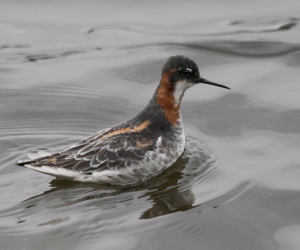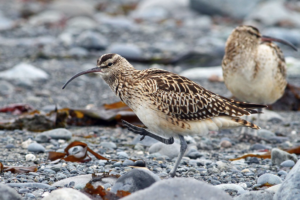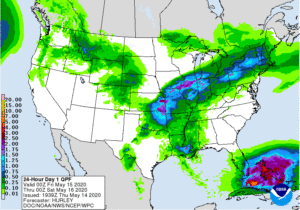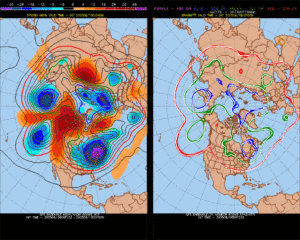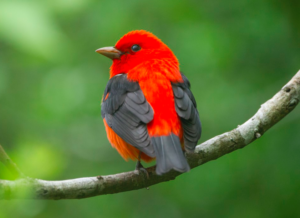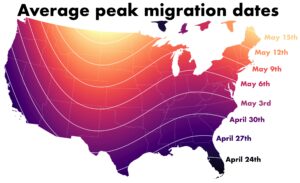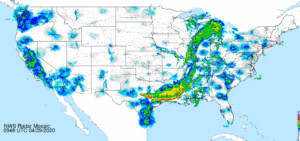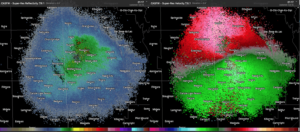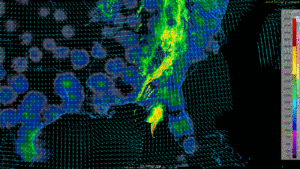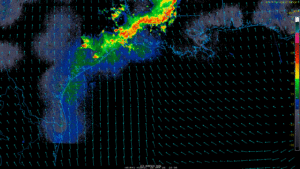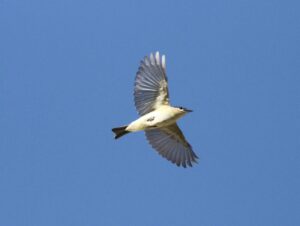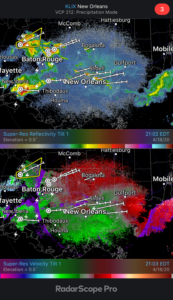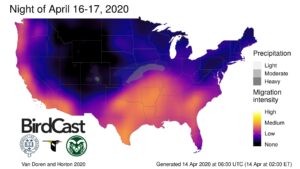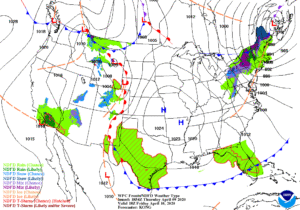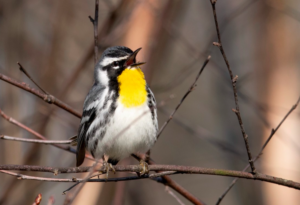News: Migration
Although Tropical Storm Arthur is not predicted to make landfall, winds associated with the system's passage will impact the coastal US from the Carolinas through southern New England in the coming days. These winds, depending on location, may be sustained at 20-30 knots for several days, and could bring an array of typically pelagically distributed species ashore. Read more...
17-19 May 2020 may bring an interesting shorebird event to the Pacific Coast of North America. An approaching strong storm system well timed to coincide with movements of spring shorebird migrants in the eastern Pacific could entrain and displace an array of unusual species. Read more...
Despite scattered medium to high intensity movements in the past 7-10 days in the northeastern US, punctuating some otherwise abysmally and anomalously cool conditions, tonight will see a significant change. Medium to high intensity movements are predicted across a wide swath of the region, including in areas where fallouts and concentrations may occur as a result of birds interacting with rain. Read more...
Global Big Day is here, and depending on your region you may have an exciting or depressing migration experience brewing: enter the polar vortex, shutting down movements in much of the East and spawning movements in the far West. Read more...
BirdCast reports on many aspects of bird migration, and sadly one scenario we encounter is mass mortality during migration. For example sometimes birds are downed when migrating over water, only to be found in the stomachs of tiger sharks; other times birds collide with myriad structures. In this case, we were alerted to a post, […] Read more...
We are nearing the window of peak migration through the US, and many species are on the move! Read more...
Medium to high intensity migration spanned the latitudinal breadth of the central US last night. Read more...
Peak migration periods in many areas of the contiguous US are approaching, and we can visualize the approaching waves of migrants in space and time. Read more...
A line of intense storms approaching the western Gulf Coast will make for interesting and challenging conditions for inbound trans-Gulf migrants. The strength and the timing of frontal passage, as well as its projected extent over water, suggest potential for larger fallouts farther south and west along the coast, in addition to those fallouts that […] Read more...
Team BirdCast has not spent much time highlighting the center of the continent this spring, so we would like to take a moment to rectify this! Read more...
In the early morning hours of 30 April, a strong frontal boundary is moving toward the Atlantic. This front has strong storms with intense precipitation, and in advance of its passage favorable winds for bird migration. Read more...
Migration Alert, Upper Texas Coast: trans-Gulf migration arrival with strong storms on 28 April 2020
As of approximately 3pm Central Daylight Time, some intense thunderstorms are about to interact with an inbound trans-Gulf migration event. Read more...
An exciting migration event unfolded yesterday morning and this morning in Southern California, as many thousands of birds continued their nocturnal movements well into the first hours of day light. Read more...
As of 20 April 2020 the BirdCast live migration maps switched color palettes to match migration forecast maps. The new color palette is more suitable for viewers with green-, red-, or blue-color blindness, and is perceptually uniform in color and black-and-white (see this interesting talk by the designers of this so-called "viridis" color scale). Read more...
This update focuses on the migration activity in the West where several nights of significant movements were apparent recently. Read more...
A brief migration update - another frontal boundary has started to move into the Gulf of Mexico region , and there are a number of interesting events to share this evening with its passage. Read more...
We updated the color scheme of migration forecast maps on 13 April 2020 to add more contrast to the palette that makes visually impaired viewing easier. Read more...
A frontal boundary is approaching the Gulf of Mexico region, likely moving over water late on Thursday evening. Fallouts and concentrations of migrating birds are likely along the Gulf of Mexico coast for several days. Read more...
Spring migration is now in full effect in many areas, with the beginnings of some peak windows of passage approaching for the southern latitudes of the US in the coming two weeks! Light to medium intensity movements will occur in the eastern and southern US. Read more...
Many species are on the move as we officially cross the vernal equinox threshold into the realm of Northern Hemisphere spring. Read more...

